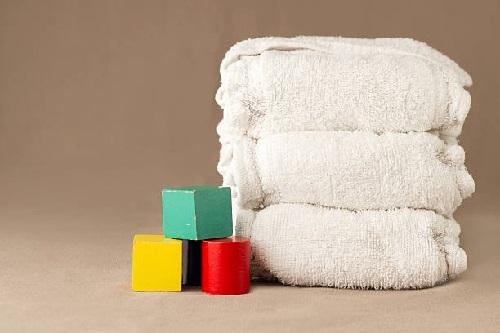As every parent knows, diapering is a significant part of caring for a baby. The world of cloth diapers has evolved over the years, offering numerous options to keep babies dry and comfortable while also being mindful of environmental impact. Among the various choices, two popular options stand out: microfiber vs bamboo diaper inserts. Each comes with its unique set of advantages and disadvantages, making the decision between the two a matter of personal preference and priorities.
The Rise of Cloth Diapers and Inserts
In recent times, an increasing number of parents have turned to cloth diapers as a sustainable and cost-effective alternative to disposable ones. Alongside cloth diapers, diaper inserts have gained popularity as an effective way to enhance absorbency and prevent leaks. Inserts are typically placed inside a pocket diaper or laid on top of an all-in-two diaper, providing an extra layer of absorbency to keep the baby dry.
Microfiber Inserts: Quick-Drying and Affordable
Microfiber inserts are made from synthetic materials and are known for their rapid absorbency. Composed of tiny fibers, microfiber quickly draws moisture away from the baby's skin, keeping them dry and comfortable. One of the key advantages of microfiber is its affordability, making it a budget-friendly option for many parents. Moreover, these inserts are relatively easy to clean and quick to dry, which can be particularly beneficial for families with limited time and resources.
However, there are some downsides to using microfiber inserts. While they excel in quick absorption, they may not be as effective at holding large quantities of liquid. As a result, frequent diaper changes may be necessary to prevent leaks, especially for heavy wetters. Additionally, some babies with sensitive skin may experience irritation due to the synthetic materials used in microfiber inserts.
Bamboo Inserts: Eco-Friendly and Naturally Soft
Bamboo diaper inserts, on the other hand, have gained popularity for their eco-friendliness and natural softness. Bamboo is a renewable resource that grows quickly and requires minimal pesticides or fertilizers, making it a sustainable choice for environmentally-conscious parents. Moreover, bamboo is naturally hypoallergenic and antimicrobial, making it an excellent option for babies with sensitive skin prone to rashes.
The exceptional absorbency of bamboo is another advantage. Bamboo fibers are highly efficient at absorbing and holding moisture, making them ideal for heavy wetters and overnight use. Unlike microfiber inserts, bamboo inserts can retain larger quantities of liquid, reducing the frequency of diaper changes and the likelihood of leaks.
However, bamboo inserts do come with a few drawbacks. They tend to be more expensive than microfiber inserts due to the cost of the sustainable bamboo material. Additionally, bamboo inserts may take longer to dry compared to microfiber, which can be a concern for parents who need a quick turnaround for diapering.
Making the Choice: Considerations and Recommendations
When deciding between microfiber and bamboo diaper inserts, there are several factors to consider. Firstly, think about your baby's specific needs and skin sensitivity. Some babies may thrive with the quick-drying and affordable nature of microfiber, while others may benefit from the natural softness and hypoallergenic properties of bamboo.
Secondly, consider your lifestyle and priorities. If you value environmental sustainability and are willing to invest in higher-quality inserts, bamboo may be the ideal choice for you. On the other hand, if budget and convenience are significant concerns, microfiber might be more suitable.
In some cases, a combination of both types of inserts could be a practical solution. Many parents opt for a microfiber insert topped with a bamboo liner for added comfort and absorbency.
In conclusion, the decision between microfiber and bamboo diaper inserts depends on a careful consideration of your baby's needs, your lifestyle, and your environmental values. Each type has its pros and cons, so it's essential to weigh them accordingly. Ultimately, the primary goal is to ensure your baby's comfort, while also being mindful of the ecological impact of your diapering choices. Happy diapering!
